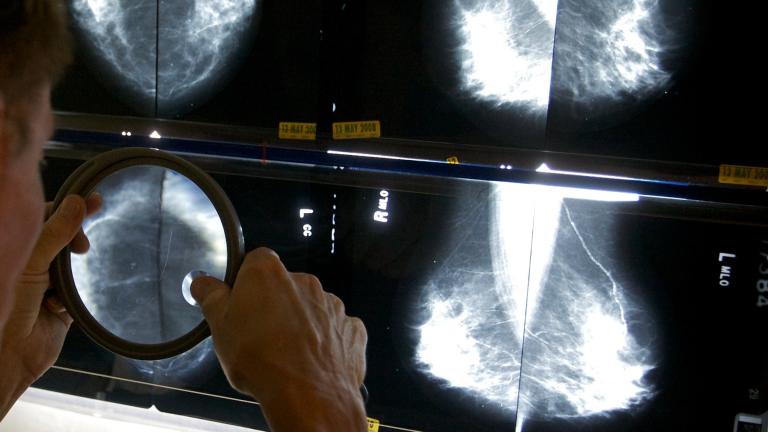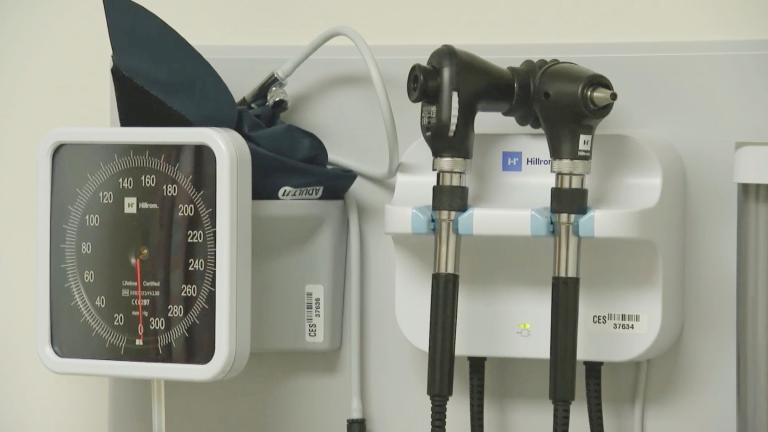Before the coronavirus pandemic, the Kaiser Family Foundation estimated that nearly 900,000 Illinoisans were without health insurance, including more than a quarter of a million Chicagoans.
As of 2019, just under 6% of white Illinoisans were without health insurance. But that number rises to more than 10% for African Americans and over 16% for Latinos.
Since then, the pandemic has shined a harsh light on the inequity in access to health care. Meanwhile, the economic disruption the pandemic has caused has seen even more people lose their insurance coverage.
But an executive order from President Joe Biden signed in January has created a special new three-month enrollment period to allow people to sign up for insurance under the Affordable Care Act. That new enrollment period began last week and runs through May 15.
“It is an opportunity that we don’t get usually at the beginning of the year to enroll in health insurance — affordable, comprehensive health insurance for folks who don’t have that option through their employer or through Medicaid,” said Stephani Becker, associate director of health care justice at the Shriver Center on Poverty Law where her work includes policy research, training and advocacy on issues related to the ACA.
“It’s basically another bite at the apple for people who missed the open enrollment in the fall for the private marketplace that in Illinois we access through healthcare.gov.,” said Becker.
She says that the Trump administration’s hostility to the ACA meant that many people didn’t know what health care insurance options they had.
“The past four years have been a challenge for a lot of folks,” said Becker. “From the very beginning, the administration and the Congress attempted to get rid of the ACA. So, for folks who aren’t really following the news, they might have heard that it was gone. There was an uphill battle to let people know that the ACA was still around and still available.”
But Becker says that it’s more important than ever — “especially during a pandemic” — that the ACA is protected and improved.
She notes that the Trump administration cut funding for outreach to let people know about the ACA by 85% in Illinois. In addition, she says the administration allowed cheaper, short-term insurance plans to proliferate that did not provide comprehensive insurance and often had very high deductibles.
Dr. Christine Schaeffer is an internal medicine specialist who works on Northwestern Medicine’s Transitional Care team which primarily serves patients on Medicare or Medicaid or who are uninsured. The team provides follow-up care for those released from an acute care setting and connects them with providers of ongoing care in the community.
Schaeffer, who is also an assistant professor of medicine at Northwestern University’s Feinberg School of Medicine, says that since the onset of the pandemic, she’s seen many people lose what insurance they had.
“A lot of people who had long-term employment and insurance associated with employment lost their jobs and they subsequently became uninsured,” said Schaeffer. “I can think of six patients off the top of my head who had urgent needs that happened to coincide with losing their coverage. And then they were in a bind because they needed surgery or some other urgent medical procedure, cancer care, and they weren’t able to get coverage.”
Schaeffer says she also sees many people who find themselves earning too much to qualify for Medicaid but not nearly enough to afford a comprehensive insurance plan.
“People who are now earning a higher minimum wage and working 45-50 hours a week. They have fallen through the cracks with Medicaid because we have not raised the (income) cut-off for enrollment in Medicaid since it was started in 2014,” said Schaeffer.
She also notes the cost of ACA plans rose dramatically during Trump’s presidency.
“Many people are now the working poor where they don’t qualify for Medicaid,” said Schaeffer. “There’s a lot of out-of-pocket expenses. Most of the ACA plans that are between $500 and $600 a month have a deductible between $3,000 and $8,000 that you must pay upfront before you have more complete coverage. That’s really cost prohibitive if you are talking about someone making $35,000 to $40,000 a year. That’s way too much of your income.”
Many of the plans rolled out during the Trump administration are low-cost plans that only have catastrophic coverage, says Schaeffer. That means you might be covered if you have a car accident but not if you develop colon cancer, which is considered an age-related disease but not a catastrophic need.
“So you have no coverage for that treatment of chemotherapy. Now what are you going to do? You have insurance that’s not covering what you need,” said Schaeffer. “They are actually worse off than if they had nothing.”
While Schaeffer is pleased to see the Biden administration reopen enrollment for the ACA, she says most of the plans in Illinois are “cost prohibitive” and would like to see the Biden administration raise the level of income that people are allowed to earn and still qualify for Medicaid.
“We’ve raised the minimum wage. And if you are working full-time in a minimum wage job and you do not have (employer) insurance I believe you should get Medicaid,” said Schaeffer. “I don’t believe you should be working two minimum-wage part-time jobs, 65-70 hours a week, and not have health insurance. That just doesn’t seem right to me.”








